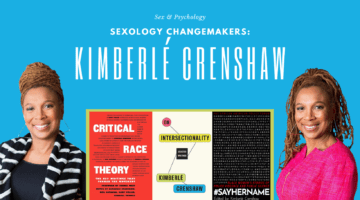Are Women Really The “Choosier” Sex?
February 15, 2012 by Justin Lehmiller
Conventional wisdom tells us that women tend to be “choosier” than men when it comes to selecting sexual and romantic partners, and there is plenty of scientific evidence to back up this idea. Evolutionary psychologists believe there is good reason for it too: Because producing a child requires a significantly greater investment of one’s body and time for women than it does for men, it is in women’s best interests to be more selective about their partners to ensure they do not wind up getting pregnant by someone who might leave them high and dry [1]. But is female choosiness really an inevitable fact of life in the heterosexual mating marketplace? Recent research suggests this may not necessarily be the case.
The traditional heterosexual dating script dictates that men should approach women, not the other way around. As a result, women are ultimately approached more frequently than men. Thus, if women are the ones constantly being put in the position of having to choose, it should come as no surprise that they tend to be more selective. So what would happen if the roles were reversed? If women were the ones doing the approaching, would men suddenly become choosier?
This idea was tested in a recent speed-dating study [2]. For those of you who aren’t familiar with speed-dating, the basic idea is that a large number of single people come together in one place and then proceed to pair off for several brief mini-dates. Specifically, people will usually rotate from table to table for a series of short (i.e., two or three minute) conversations with complete strangers. In one speed-dating session, each person involved may have 20 or more of these brief “dates.” Based only upon these encounters, speed daters later decide who (if anyone) they would like to take on a real date afterward. In this particular study, the researchers manipulated who got up at the end of each encounter to move to the next table (i.e., who was doing the approaching). Half of the time it was the men, and the other half of the time it was the women.
When the men were approaching women, it was business as usual in the sense that women were significantly choosier than men. However, when women were the ones approaching men, this sex difference in selectivity disappeared completely! The sex difference did not truly reverse itself (i.e., we did not see men become more selective than women). Instead, men and women simply became equally selective in this case.
These findings suggest that choosiness may not be an innate part of female psychology, but rather a product of a highly gendered society that dictates who should be the initiator of sexual and romantic encounters. Although these findings do not necessarily rule out the evolutionary explanation, they do offer the provocative possibility that women may only be the choosier sex because that’s the way we expect them to be, not because that’s the way they are by nature.
Want to learn more about Sex and Psychology ? Click here for previous articles or follow the blog on Facebook (facebook.com/psychologyofsex), Twitter (@JustinLehmiller), or Reddit (reddit.com/r/psychologyofsex) to receive updates. You can also follow Dr. Lehmiller on YouTube and Instagram.
[1] Buss, D. M., & Schmitt, D. P. (1993). Sexual strategies theory: A contextual evolutionary analysis of human mating. Psychological Review, 100, 204–232.
[2] Finkel, E. J., & Eastwick, P. W. (2009). Arbitrary social norms influence sex differences in romantic selectivity. Psychological Science, 20, 1290–1295.
Image Source: 123rf
You Might Also Like:

Dr. Justin Lehmiller
Founder & Owner of Sex and PsychologyDr. Justin Lehmiller is a social psychologist and Research Fellow at The Kinsey Institute. He runs the Sex and Psychology blog and podcast and is author of the popular book Tell Me What You Want. Dr. Lehmiller is an award-winning educator, and a prolific researcher who has published more than 50 academic works.
Read full bio >


